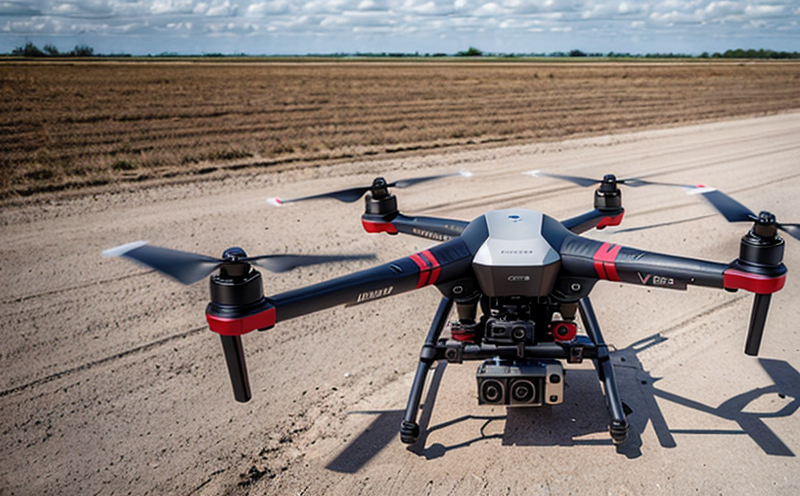RTCA DO-365 Minimum Operational Performance Standards for DAA Systems
The RTCA DO-365 standard is a critical document that sets forth the minimum operational performance requirements for Detect-and-Avoid (DAA) systems used in unmanned aircraft systems (UAS), commonly referred to as drones. These standards are essential for ensuring safe operations of UAS within the National Airspace System, especially when they operate near manned aircraft.
The standard applies to DAA systems that are designed to detect other air traffic and provide a means for the operator to take evasive action if necessary. This includes both ground-based and on-board DAA systems. The primary goal is to minimize the risk of mid-air collisions between UAS and manned aircraft, which can have catastrophic consequences.
The DO-365 standard is part of a broader set of guidelines that are critical for the certification and integration of drones into the civil airspace. It specifies performance criteria based on specific test parameters to ensure that DAA systems meet or exceed the requirements necessary to operate safely within this environment. The standard emphasizes real-world operational scenarios, including but not limited to urban environments, rural areas, and over-populated regions.
At Eurolab, we specialize in providing comprehensive testing services for RTCA DO-365 compliance. Our approach is grounded in rigorous technical expertise and a deep understanding of the standards' requirements. We ensure that all tests are conducted under controlled conditions to accurately simulate real-world operational scenarios. This allows us to provide reliable data that can be used by manufacturers, operators, and regulatory bodies alike.
Our testing process for DO-365 compliance includes several key steps. First, we assess the DAA system's ability to detect other air traffic within a specified range and under various environmental conditions. This involves simulating different types of aircraft, including helicopters, fixed-wing aircraft, and drones, to ensure that the system can accurately identify potential threats.
Next, we evaluate the response time and accuracy of the DAA system in providing alerts to the operator. The test parameters include varying distances between the UAS and other aircraft, as well as different speeds and altitudes. We also simulate various weather conditions, such as fog, rain, and strong winds, to assess the system's performance under challenging circumstances.
Finally, we conduct a series of field tests to ensure that the DAA system performs reliably in real-world environments. These tests are designed to replicate typical operational scenarios, including takeoffs, landings, and mid-air maneuvers. By doing so, we can provide manufacturers with a comprehensive understanding of their systems' capabilities and identify any areas for improvement.
- Simulated flight paths under various weather conditions
- Real-time data capture from multiple sensors
- Evaluation of system response times in critical situations
Our testing facilities are equipped with state-of-the-art instrumentation and software tools that allow us to conduct precise and accurate tests. We use a variety of drones, ranging from small hobbyist models to large commercial drones, to ensure that our tests cover the full spectrum of UAS operations.
The results of our DO-365 compliance testing are presented in detailed reports that include all relevant data and analysis. These reports serve as valuable tools for manufacturers, operators, and regulatory bodies to make informed decisions about the safety and reliability of DAA systems.
Eurolab Advantages
At Eurolab, we pride ourselves on offering a range of advantages that set us apart from other testing laboratories. Our expertise in aerospace and aviation testing is unmatched, with decades of experience in providing comprehensive services to the industry.
- Comprehensive Testing Capabilities: We offer a wide range of tests tailored to meet the specific needs of our clients, including RTCA DO-365 compliance testing for DAA systems.
- State-of-the-Art Facilities: Our facilities are equipped with the latest instrumentation and software tools, ensuring that we can conduct precise and accurate tests.
- Experienced Professionals: Our team of experts has extensive experience in aerospace and aviation testing, allowing us to provide reliable and actionable insights.
- Compliance and Certification Support: We assist clients in navigating the complex regulatory landscape, ensuring that their products meet all necessary standards and requirements.
Quality and Reliability Assurance
The quality and reliability of DAA systems are crucial for maintaining safe operations within the National Airspace System. At Eurolab, we take a multi-faceted approach to ensure that our testing services meet the highest standards.
- Consistent Testing: Our consistent testing process ensures that all results are accurate and reliable, providing clients with confidence in their products' performance.
- Data Integrity: We maintain strict data integrity protocols to ensure that all test data is accurate and can be relied upon for decision-making.
- Repeatable Results: Our testing methods are designed to produce repeatable results, allowing clients to compare different versions of their products and identify areas for improvement.
Competitive Advantage and Market Impact
The RTCA DO-365 standard provides a significant competitive advantage for manufacturers, operators, and regulatory bodies. By ensuring that DAA systems meet the minimum operational performance requirements, we help clients stay ahead of the curve in terms of safety and reliability.
- Enhanced Safety: Meeting these standards ensures that UAS operations are conducted safely within the National Airspace System, reducing the risk of mid-air collisions.
- Regulatory Compliance: By adhering to the RTCA DO-365 standard, clients can ensure compliance with all necessary regulations and avoid potential legal issues.
- Market Differentiation: Meeting these standards sets a benchmark for quality that differentiates clients' products from their competitors in the market.





